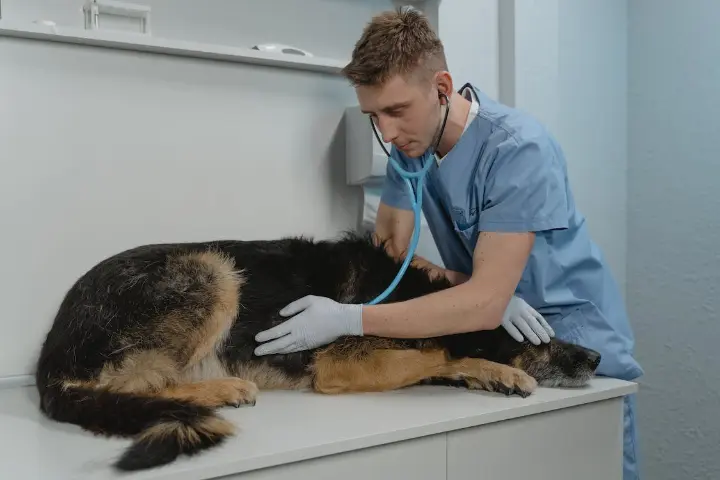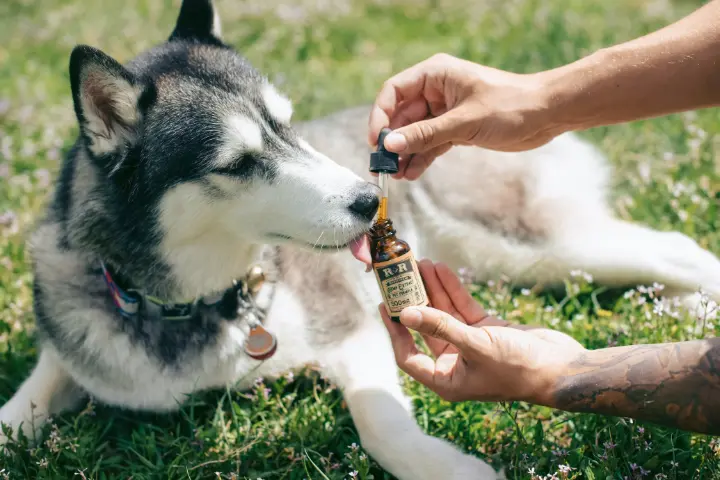You’ve probably gone through multiple resources about caring for a dog before adopting one. During your research, you came across the various allergies a canine could develop over the years. For example, they can have adverse reactions due to common environmental (fleas) and food (protein) allergens.
But did you know about an underrated type of allergy any dog could develop? Apart from the year-round ones, canines can have seasonal allergies during specific times of the year (yes, just like humans).
While this is uncommon, pooches with seasonal allergies can develop symptoms during spring and fall. However, the severity of the symptoms depends on the dog’s reactions to specific allergens in the environment. It can also depend on the weather and location.
In this blog, we will discuss everything a pet parent should know about canine seasonal allergies.
How to Tell If Your Dog Has Seasonal Allergies?
According to The Weather Channel, telltale signs of seasonal allergic reactions in dogs can sometimes be similar to those in humans, like viral infections. However, the basic symptoms are different. For instance, a human will develop a runny nose, while dogs can have severe itching.
As a dog parent, you should look out for the following signs:
- Inflamed, infected, or red skin that the dog is continuously scratching.
- Unusual discolored patches or black pigmentation of the skin.
- Compulsive paw licking, excessive shedding, and gnawing at their fur coat.
- Rubbing their body and back on the carpet or grass due to itchiness.
- Continuous licking of their paws and anal glands.
- Chronic ear infections with smelly, red, and inflamed ears.
- Respiratory issues like sneezing, wheezing, coughing, and difficulty breathing.
Usually, the dog will show seasonal allergy symptoms between the ages of one and three years. These mostly affect your munchkin’s groin area, ears, paws, underarms, and toes. However, the symptoms will vary based on your dog’s breed and immunity.
If you notice these signs, you should take them to the vet for early detection and diagnosis. They will perform allergy tests in a hospital setting to determine the underlying causes of the symptoms.
What Can Trigger Allergies in Your Dog?
Like humans, your munchkin’s seasonal allergies can be triggered by environmental elements. Hence, they can be sensitive to these common allergens:
- Pollen from trees (oak, cedar, ash), grass, and weed (ragweed)
- Mold spores, yeasts, dust mites, and mildew
- Shed skin or organic cells (similar to pet allergies in humans)
In humans, seasonal allergies occur when they inhale airborne particles. But exposure is different for a dog. Airborne allergens can get into the canine’s immune system through their skin, leading to dermatitis.
Ideally, the dog’s skin protects them against foreign substances. But unfortunately, during allergy season, the skin gets compromised.
Your dog’s immune system will deteriorate if the skin cannot fight against seasonal allergies. Then, the allergens will adversely affect their immunity, leading to inflammation. As a result, they show symptoms like itching or scratching of their skin.
How Are Seasonal Allergies Diagnosed?
As mentioned earlier, you should consult a vet before ‘diagnosing’ your pooch with seasonal allergies. They usually use allergy testing methods or perform blood tests.
The vet will then offer a diagnosis based on the dog’s symptoms, history of infection, response to therapy, and laboratory tests. These physical exam findings will help rule out other allergic reactions from skin mites, food, etc.
Sometimes, it might be recommended that you get a skin test done by a veterinary dermatologist for an accurate diagnosis. They will measure the pet’s reactions to microdoses of allergens. This test will help determine what they’re actually allergic to.
Based on all these findings, your little furball will be prescribed veterinary medicine or alternative therapy.
How Can You Help Soothe Seasonal Allergies in Your Pooch?
While there’s no permanent cure, the pet industry has introduced multiple ways to soothe and deal with seasonal allergy symptoms. For example, you can get antihistamine treatments, rely on allergy shots, topical therapy, and more.
Apart from that, there are three treatment options suitable for all dogs:
#1. Use Anti-Inflammatory Medication
One of the best ways to manage seasonal allergies in dogs is through prescribed steroid medications. This type of medication can effectively block seasonal allergic reactions. It can also promote healthy recovery from dermatitis, inflamed eyes, arthritis, etc.
The vet will probably prescribe prednisone for dogs if your pet has seasonal allergies. This steroid medication can help with symptoms like hair loss or skin irritation. Prednisone can also help your dog deal with bronchial lung disease or spinal cord trauma.
However, there are some side effects of prednisone use. According to PetCareRx, prednisone has unfortunately been linked to weight gain, increased hunger, unquenchable thirst, excessive panting, vomiting, etc.
Since the drug can weaken the dog’s immunity, they can sometimes develop inflammatory bowel disease, kidney disease, and urinary tract infections. That’s why you should get a vet’s advice before giving prednisone to your pet.
#2. Add Natural Supplements
You can rely on natural dietary supplements if you don’t want to risk your dog’s health by giving them medications. Yes, you can treat your pet’s seasonal allergies with everyday nutrition. Examples include the following:
- Omega-3 and Omega-6 oils
- Fatty acid and fish oil
- Coconut oil
- Drinking lots of water
- Taking dog supplements for better nutrition
These can help reduce the effects of environmental allergens during allergy season. If your allergic munchkin gets a healthy supply of these supplements daily, it’ll reduce itchiness and promote skin health.
You can also rely on therapeutic dog foods. These are usually formulated to help your dog with skin allergies. Overall, natural supplements can surely replace the need for any medication.
#3. Limiting Exposure to Allergens
A holistic way to reduce your munchkin’s seasonal allergies is by avoiding allergens altogether. You can limit their exposure with these tactics:
- Wash the bedding in hot, soapy water every week.
- Keep carpets and couches vacuumed regularly.
- Use a high-efficiency air filter.
- Wash their chew and plush toys every other day.
- Use antibacterial or antifungal shampoos, wipes, ointments, sprays, etc.
Unfortunately, these won’t eliminate all airborne allergens, especially pollen. That’s why it might not be the perfect solution for your dog.
In conclusion, your furball is susceptible to allergies during the fall and spring seasons. While it is uncommon for canines to have this, it’s somewhat easy to treat. All you have to do is limit their exposure, feed them supplements, or use medications. But before doing that, you shouldn’t forget to consult a vet.












